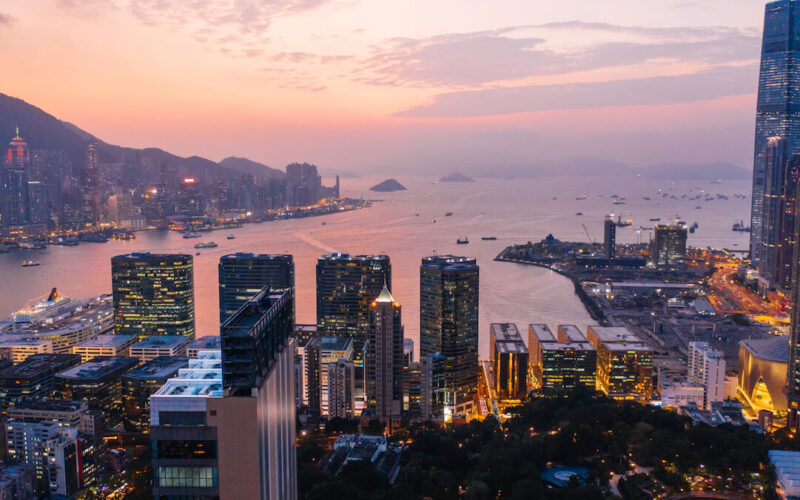In its latest move to implement its ‘Zero-Covid’ policy, Hong Kong is set to ban transit passengers from its list of designated high-risk countries, according to a report by Bloomberg.
There are currently almost 150 countries and nations that have been designated ‘high-risk’ countries (called “Group A”) by Hong Kong. Under this new policy, passengers traveling from these places will not be able to transit through Hong Kong International Airport (HKIA). A complete list of Group A nations can be viewed here.
The transit ban will take effect from January 15, 2022 until February 14, 2022. Reuters has reported that the ban will not apply to diplomats, government officials, athletes and staff participating in the Winter Olympics, which is set to open on February 4, 2022, in Beijing.
Depending on COVID-19 activity, further extensions to the ban are possible.
Since the start of the pandemic, Hong Kong has regularly practiced temporary flight and arrival bans from certain destinations as part of its ‘Zero-Covid’ policy. This policy has led the territory to implement some of the most stringent global quarantine measures, which in turn has largely driven air passengers to avoid Hong Kong altogether.
On January 5, 2022, the Hong Kong government announced its decision to implement “place-specific flight suspensions” from eight countries from January 8 to 21, 2022. The suspensions apply to Australia, Canada, France, India, Pakistan, the Philippines, the United Kingdom and the United States of America.
Reuters reported that Hong Kong’s chief executive Carrie Lam has warned that the territory will soon be hit by the negative impact of its own tough ‘Zero-Covid’ policy.
Speaking at the opening session of Hong Kong’s “patriots-only” legislature, Lam said that Hong Kong already had the strictest measures against imported coronavirus infections and it was “difficult to tighten them further”.
On December 31, 2021, Hong Kong’s carrier Cathay Pacific announced that it was temporarily suspending all long-haul cargo operations for a week due to stricter COVID-19 quarantine requirements for air crews.
“The consequences of these cargo policies will be seen very soon,” Lam told legislators.
“We almost have no goods entering via cargo flight.”
“Destroying this industry will not only affect the flight companies, it will affect every citizen.”
Lam also said that she expected some goods to be unavailable or their price to go up, with food, electronics and medicine among the worst affected.
Global market financial analyst Fitch Ratings had also recently warned that Hong Kong’s tight restrictions in following its ‘Zero-Covid’ policy will likely dampen the area’s economic growth.
“A further tightening of controls on international travel, announced on January 5, 2022, are likely to dampen economic growth prospects relative to our baseline assumptions, posing downside risks to our current forecast that the economy will expand by 3% in 2022,” Fitch ratings said.

